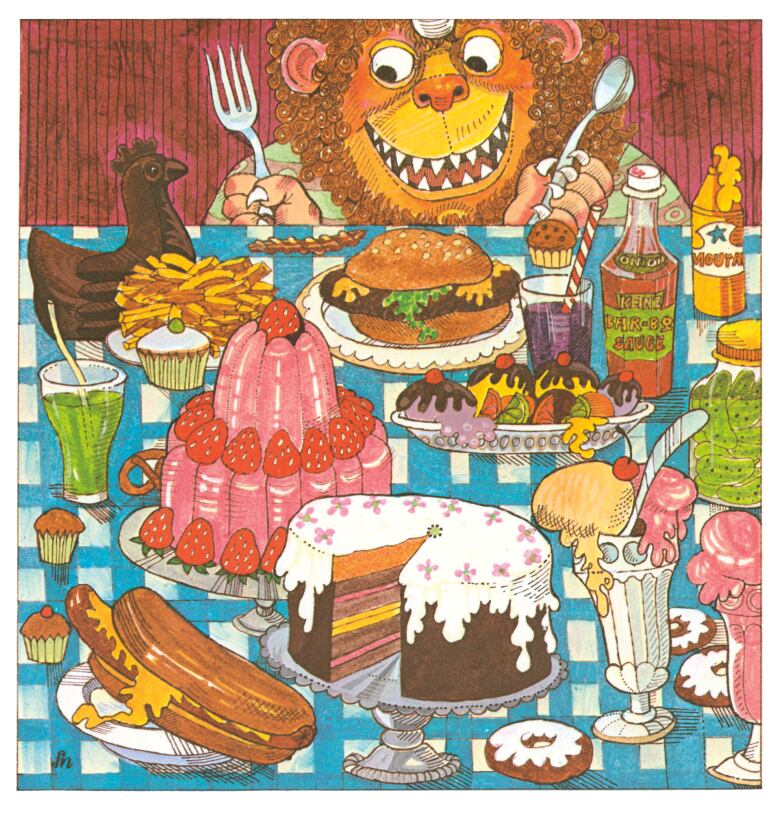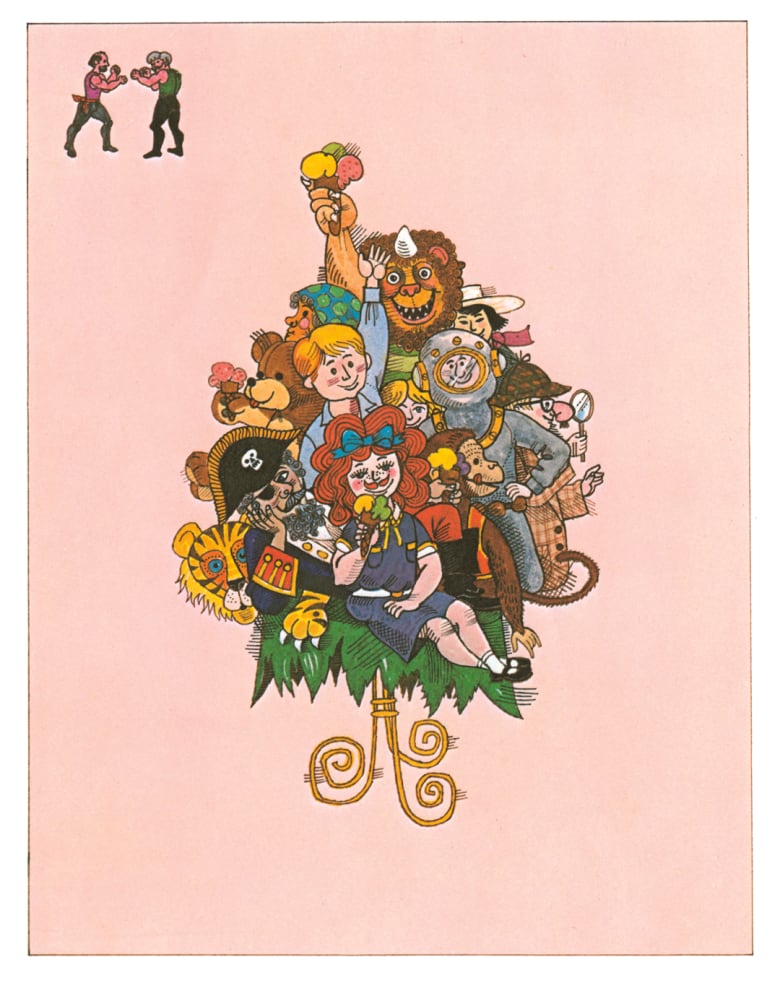50 facts about the life and career of Canadian poet Dennis Lee

2019 marks two milestones for Canadian poet Dennis Lee — he turns 80 years old on Aug. 31, 2019 and his most famous book, the classic children's poem Alligator Pie, turns 45.
CBC Books is celebrating with this collection of 50 interesting facts about the iconic writer and editor.
1. Dennis Lee was born in Toronto on Aug. 31, 1939.
2. Lee grew up in Etobicoke, which was a brand new suburb at the time.
3. He told the National Post in 2015 that his favourite books as a child were The Wind in the Willows and Winnie-the-Pooh.
4. Lee also remembers reading Don Quixote when he was "way too young" — around age nine.
5. Lee came from a bookish family — his mother, in particular, being a voracious reader. Mother Goose nursery rhymes were his first exposure to poetry.

6. When Lee was around eight years old, he published his first poem, If, which appeared in an American kids' magazine called Wee Wisdom.
7. When a high school teacher told him that he had a bright future in math, Lee remembers feeling disillusioned.
8. Lee graduated from the University of Toronto with an English degree in 1962.
9. In the mid-1960s, Lee worked at Toronto's Rochdale College, Canada's first experimental student-run free university.
10. He co-founded the independent publisher House of Anansi Press in 1967 alongside David Godfrey.

11. Anansi's first book was Lee's debut poetry collection Kingdom of Absence, published in 1967.
12. House of Anansi began as a poetry press, but evolved into publishing fiction thanks to, as Lee described, "an uprising of very gifted writers."
13. As the editorial director of House of Anansi until 1972, Lee published the early works of writers like Margaret Atwood, Marian Engel, Michael Ondaatje, Matt Cohen, Austin Clarke and Graeme Gibson.
14. Lee tied to win the Governor General's Literary Award for poetry with Civil Elegies in 1972. His co-winner was John Newlove for Lies.
15. Civil Elegies is a critical examination and a lament of Canadian citizenship in the early 1970s. Literary critic Eli Mandel described it as "one of the most important contemporary books of poetry in our country."

16. Lee wrote Alligator Pie while riding a bicycle on Sussex Avenue in Toronto. He'd been reading nursery rhymes to his daughters, a newborn and 2.5 year old every night. "As my feet went round on the pedals — puh-choong, puh-choong, puh-choong — I started hearing these idiotic words — Alligator Pie, Alligator Pie, Alligator Pie." He tried to ignore it at first, but the words continued to haunt him so he went back to the house and scribbled it down to get it out of his head.
17. The publication of Alligator Pie in 1974 is credited with starting a boom in Canadian children's publishing.
18. Lee admitted he was nervous about publishing his first children's poetry in the mid-1970s because he didn't know what fellow poets would think of it. It turned out they were very supportive.
19. Describing his approach to children's poetry, Lee had this to say in 1977: "When I write, I don't try to calculate what kids want to hear, what will they enjoy most. Should there be one monster, one ice cream cone, one pirate, one spaceship and so on? I really just try to get in touch with one of the many kids in myself because I think all adults have a variety of children bouncing up and down inside them. That leads me."
20. Lee read some of his poetry from Garbage Delight on CBC in 1977.
21. Of Alligator Pie, Margaret Laurence said the poem moved her so much that she could, "almost hear the skipping ropes slapping the sidewalk."
22. Lee said that a lot of his early children's poems went through 40 to 60 drafts: "Often I had the feeling I wasn't just making up a poem, I was catching hold of a poem that was there, that hadn't been written down yet."
23. One of the hallmarks of Lee's children's poetry is the way he playfully weaves in multisyllabic names of cities, small towns and places across Canada, from Chicoutimi, Que. to Winnipeg.
24. Lee has published nearly 40 books of prose and poetry.
25. Along with Phil Balsam, he wrote songs for 96 episodes of the television show Fraggle Rock.
26. Lee became an officer of the Order of Canada in 1993.
27. He was awarded the Vicky Metcalf Award for children's literature for his body of work in 1986.
28. Margaret Atwood described him in 1976 as her "Jiminy Cricket conscience."
29. With other Canadian writers, Lee was featured in a novelty book of recipes called The CanLit Foodbook.
30. The CanLit Foodbook collected unusual dishes featured in Canadian literature, including Lee's Quick Baked Monster Cake. Proceeds for the book went to support PEN Canada.
31. Lee received the Mr. Christie's Book Award in 1991 for the children's poetry collection The Ice Cream Store, illustrated by David McPhail.
32. Lee is married to writer Susan Perly.
33. A lifelong Torontonian, Lee received the City of Toronto Lifetime Achievement Award in 1995.
34. He later served as Toronto's first poet laureate from 2001 to 2004.
35. In an interview with Lynn Saxberg published in the Ottawa Citizen in March 2019, Lee said he's always tried to focus on his next work rather than the success of his previous writing: "Even back when the books were just coming out and were considerable successes, I tried to stand back from the public success. I'm glad and grateful for it, but my main concentration is the poems that still aren't working, the ones that I can feel beckoning me on."

36. Lee's mentor was venerated Canadian poet Al Purdy.
37. In 1996, Lee advocated that Purdy deserved the Nobel Prize for "the sheer, lift-off excellence of his best poetry. There are single passages that make you tingle with their eloquence."
38. Alongside Purdy, Lee credits German-language poets Friedrich Hölderlin, Rainer Maria Rilke and Paul Celan as having the most influence on him over his career.
39. In 2018, Lee collected 50 years of his poetry — children's poems, story poems, lost poems and more — into the book Heart Residence.
40. On page 125 in Heart Residence, Lee included the worst poem he ever wrote. He read it for The Sunday Edition.
41. While on The Next Chapter to discuss Heart Residence, Lee apologized to readers for the misplaced comma on page 37. He promised to change it in every copy he sees.
42. In a 1996 profile with Quill & Quire, Lee admitted that he is an "extremely slow" writer. His work often goes through 50 revisions and is sometimes completed a full decade after being started.
43. Lee says he can work in any quiet space, but can usually be found in his basement study or backyard in Toronto's Annex neighbourhood.
44. Lee's work has been adapted for theatre in Toronto, including Alligator Pie, Lost Songs of Toronto and Civil Elegies.
45. Some of the celebrated illustrators that Lee has worked with include Frank Newfeld, David McPhail, Qin Leng, Dušan Petričić, Maryann Kovalski, Jeremy Tankard and Sandy Nichols.

46. Lee says he spent his early writing years trying to write carefully sculpted sonnets, but it wasn't working for him. After writing his first poetry collection, Lee made a breakthrough: "I'm sure that's what broke the dam — the long tumbling line that swept you forward, with the syntax splaying all over hell's half acre because so many things had to be said at once — that was the music that was waiting to come through."
47. Lee got in trouble with the Nova Scotia Department of Education in 2005 for the playful poem Bratty Brother, in which the young narrator describes shoving their brother into a furnace and off the CN Tower. Officials felt it was a "violent poem and the humour of it escapes our reviewers."
48. In 2013, a Toronto Public Library patron challenged Lee's picture book, Lizzy's Lion, for being "violent and disturbing." In the story, a fable on bullying, Lizzy's pet lion eats a robber.
49. On Canadian Poetry Online, a project by the University of Toronto, a list of Lee's passions include the Canadian Shield, cryptic crosswords and cello music.
50. In an interview with Lynn Saxberg published in the Ottawa Citizen in March 2019, Lee said he doesn't expect to ever retire from writing.



